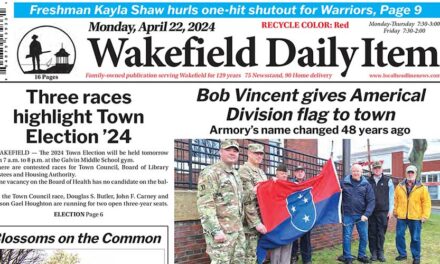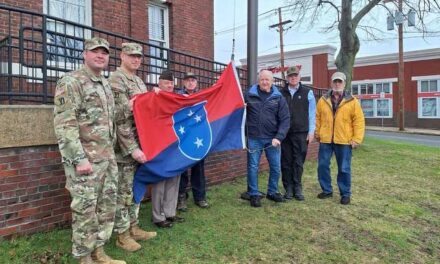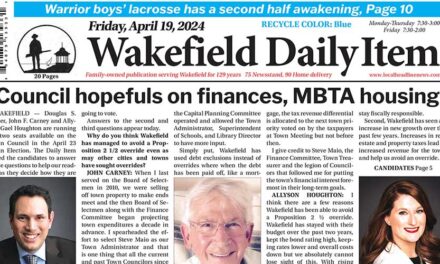Published in the November 16, 2015 edition.
The semi-annual legislative gathering known as Town Meeting gets underway tonight in the Galvin Middle School auditorium at 7:30. We find a few of the items on the small 13-article warrant fascinating.
Article 9, for instance, is an attempt to place a few guidelines on people who rent out rooms in their homes to those who use Airbnb, a website for people to list, find and rent short-term lodging. It is often used by travelers as a less expensive alternative to hotels. Last week the Planning Board decided they would not back the proposal to require a Special Permit to open up a home to short-term lodgers. One Planning Board member who opposes the warrant article — Matthew Lowry — didn’t see a big enough problem with Airbnb operations in town to warrant a bylaw change.
Article 10 is an attempt to reinstitute and enforce the town’s overnight parking ban in the winter months. We wholeheartedly agree with the move.
Article 11 deals with open space subdivisions and the amount of open space that must be provided. At last week’s Planning Board meeting, Town Planner Paul Reavis explained that the purpose of the town’s current Open Space Development bylaw is to “encourage the permanent preservation of open space” and “to encourage less sprawling and more efficient land development that consumes less land and conforms to existing topography and natural features better than commonly occurs with a conventional or grid subdivision.”
Reavis noted that currently Wakefield’s bylaw requires that the first plan that a developer submits when seeking approval for a subdivision must be an open space subdivision plan.
Reavis reviewed the history of open space subdivisions in Massachusetts. He noted that years ago Wakefield hired a consultant to write the town’s open space development bylaw. That same consultant wrote an almost identical bylaw for the town of Westwood, he said. The bylaw requires a developer of an open space subdivision to preserve at least 40 percent of the total land area being subdivided as open space.
But in 2008, Reavis explained, a Massachusetts court found the Westwood bylaw to be illegal. The court said that a town of Westwood could not impose a requirement on a developer to submit an open space subdivision plan when the developer might very well be able to meet all of the legal requirements for a traditional subdivision.
In the meantime, because the requirement is still on the books, developers wanting to build traditional subdivisions in Wakefield must first file an open space subdivision plan, only to be denied, before they can submit a traditional plan. If they did not follow the local bylaw as written, it could create a cloud on their title.
Reavis described the proposed amendments to Wakefield’s open space subdivision bylaw (Chapter 190-93) as a “housekeeping item.” It was made clear, however, that if the bylaw provision remains on the books, the town could be sued as Westwood was.
“The court says you can’t impose this on developers as a legal requirement,” Reavis said.
So instead of requiring all developers to first submit OSD plans, the amended bylaw as proposed in Town Meeting Article 11 would make submitting an OSD plan optional. As an incentive to try to attract developers to pursue an open space design, the amended bylaw would reduce the minimum required number of house lots from four to two and reduce the amount of open space that must be preserved from 40 percent to 25 percent.
Article 12 is a proposal to encourage a shift toward multi-family, mixed use developments in the downtown. It would make it easier for developers to propose projects in business and industrials zones that have retail on the ground floor and residential units above. Similar zoning exists in the city of Melrose and has proven beneficial there.
Other articles to be discussed include Town Administrator Stephen P. Maio’s report on the financial health of Wakefield, which is also a closing of the books on the fiscal year that ended last June 30.
Debate should prove interesting at some point in tonight’s proceedings. Exercise one of your basic rights and attend Town Meeting tonight. This very basic example of government of, for and by the people may just interest you.




